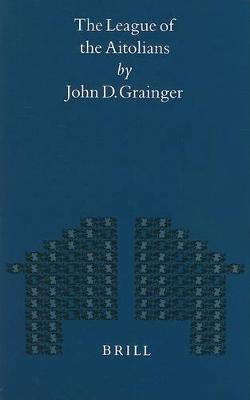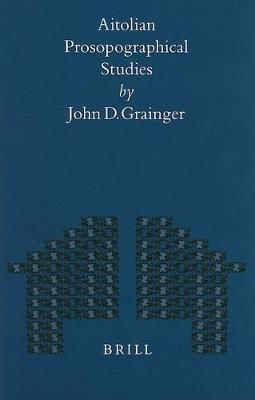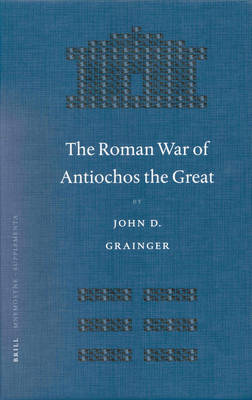Mnemosyne, Supplements
3 primary works
Book 200
The Aitolians have had a bad press, regarded as pirates and brigands, and their state as a pirate state built on terrorist tactics. This book treats them as what they really were, a normal Hellenistic state. They constructed an original and successful polity which provided peace and prosperity for its inhabitants, and played a major part in Greek history for a century and a half.
The approach is chronological, beginning with the origin and formation of the league and its early expansion, and then dealing with its long duel with Macedon, and concluding with its destruction by Rome.
This is the first full account of the history of the league which approaches it as an independent state rather than as the enemy of other states and peoples. It complements the standard histories of the other Hellenistic states.
The approach is chronological, beginning with the origin and formation of the league and its early expansion, and then dealing with its long duel with Macedon, and concluding with its destruction by Rome.
This is the first full account of the history of the league which approaches it as an independent state rather than as the enemy of other states and peoples. It complements the standard histories of the other Hellenistic states.
Book 202
This aim of this work is to provide part of the basis for the study of a widely misunderstood people of Ancient Greece, the Aitolians. It is the people of any society who are its constituents, and only when we know who they were and what they did can that society be properly investigated.
By accumulating a list of all known Aitolians, their origins, parentage, their place in the society, and any other details discoverable, it is possible to reconstitute Aitolian families, and to study various sections and aspects of their society.
The prosopography and the studies based on it form part of the essential background for the author's history of The League of the Aitolians (published by Brill earlier in 1999), and they also form a contribution to the study of the society which was Ancient Greece.
By accumulating a list of all known Aitolians, their origins, parentage, their place in the society, and any other details discoverable, it is possible to reconstitute Aitolian families, and to study various sections and aspects of their society.
The prosopography and the studies based on it form part of the essential background for the author's history of The League of the Aitolians (published by Brill earlier in 1999), and they also form a contribution to the study of the society which was Ancient Greece.
Book 239
This is the first detailed study of the collision of the two greatest powers of the Hellenistic world. The Roman Republic, victorious over Carthage and Macedon, met the Seleukid kingdom, which had crushed Ptolemaic Egypt. The preliminary diplomatic sparring was complicated by Rome's attempts to control Greece, and by the military activities of Antiocohos the Great, and ended in war.
Despite well-meaning attempts on both sides to avoid and solve disputes, areas of disagreement could not be removed. Each great power was hounded by the ambitions of its subsidiary clients. When the Aitolian League deliberately challenged Rome, and Rome seemed not to respond, Antiochos moved into Greece to take Rome's place.
The Roman reaction produced the war, and a complex campaign by land and sea resulted in another Roman victory.
Despite well-meaning attempts on both sides to avoid and solve disputes, areas of disagreement could not be removed. Each great power was hounded by the ambitions of its subsidiary clients. When the Aitolian League deliberately challenged Rome, and Rome seemed not to respond, Antiochos moved into Greece to take Rome's place.
The Roman reaction produced the war, and a complex campaign by land and sea resulted in another Roman victory.


